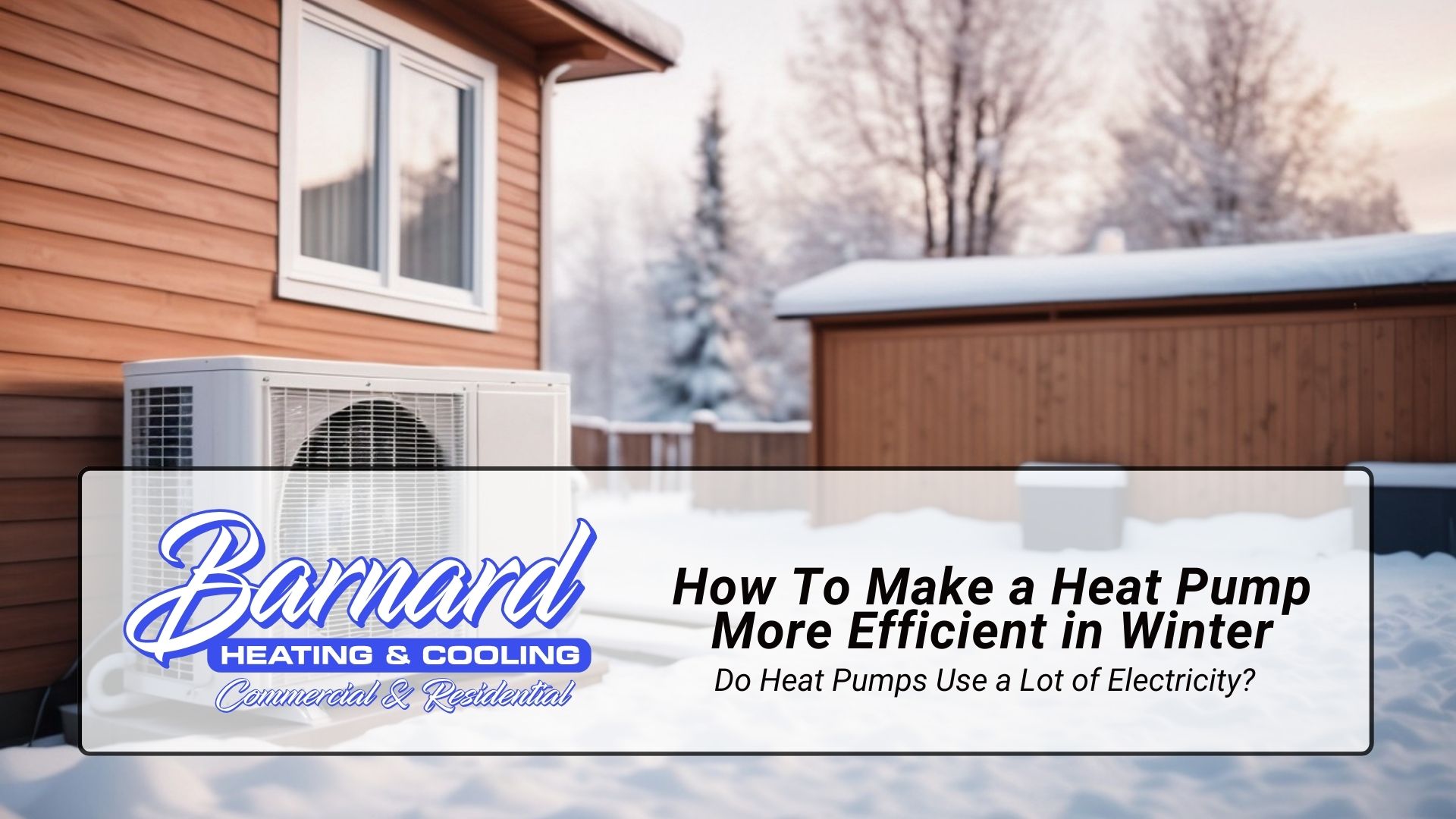There are ways to maximize your heat pump's efficiency during the chilly winter months. In places where winters can be quite demanding, ensuring your heat pump operates at peak efficiency is a matter of comfort, energy savings, and environmental responsibility.
Understanding Heat Pump Efficiency
Heat pumps transfer heat from the outside air into your home, even in cold weather. This process is inherently more energy-efficient than traditional heating methods that generate heat, as it merely moves existing warmth.
Benefits of Higher Efficiency
Increased efficiency in heat pumps offers numerous benefits:
-
- Reduced energy bills: Efficient heat pumps use less electricity, directly impacting your utility bills positively.
- Enhanced comfort: A well-maintained and efficient heat pump provides consistent warmth.
- Lower environmental impact: Lower energy consumption means a smaller carbon footprint. Heat pumps have the potential to reduce global CO2 emissions by at least 500 million tons by 2030.
- Longer system lifespan: Efficient operation reduces wear and tear, prolonging the life of your heat pump.
How To Make a Heat Pump More Efficient in Winter
Here are five ways you can make your heat pump more effective:
-
- Perform regular maintenance: The first step is regular maintenance. This includes cleaning or replacing air filters, checking the system's refrigerant levels, and ensuring the outdoor unit is free from debris.
- Optimize your thermostat settings: Avoid drastic temperature changes. Setting your thermostat to a constant, moderate temperature can prevent your system from overworking.
- Insulate your home: Proper insulation keeps the warmth inside, reducing the load on your heat pump. Check for drafts around windows and doors, and consider adding insulation where necessary.
- Use supplementary heat wisely: On extremely cold days, using a supplementary heating source can be beneficial. However, it's important to use this judiciously to avoid excessive energy consumption.
- Upgrade to a smart thermostat: Smart thermostats can optimize heating schedules based on your lifestyle, reducing energy waste.
Do Heat Pumps Use a Lot of Electricity?
This is a common question among those considering a heat pump. The answer lies in the efficiency of the unit and how it's used. While heat pumps do use electricity, they are generally more efficient than traditional heating systems. The amount of electricity a heat pump uses is largely dependent on the outdoor temperature, the heat pump's efficiency rating (SEER and HSPF), and the home’s insulation.
A heat pump's method of moving heat rather than generating it, especially in systems maintained for high efficiency, often results in lower overall energy use compared to traditional heating methods.
Get the Most Out of Your Heat Pump
Making your heat pump more efficient in winter is a blend of regular maintenance, smart usage, and understanding the dynamics of heat transfer. By following the tips outlined above, homeowners and business owners alike can enjoy a cozy winter with the added benefit of reduced energy bills and a lower environmental impact. Remember, an efficient heat pump is a win-win for your comfort and wallet. Stay warm this winter!
For more tailored advice or professional heat pump services, contact Barnard Heating and Cooling – Carthage, Missouri's trusted partner in home and business comfort solutions.
